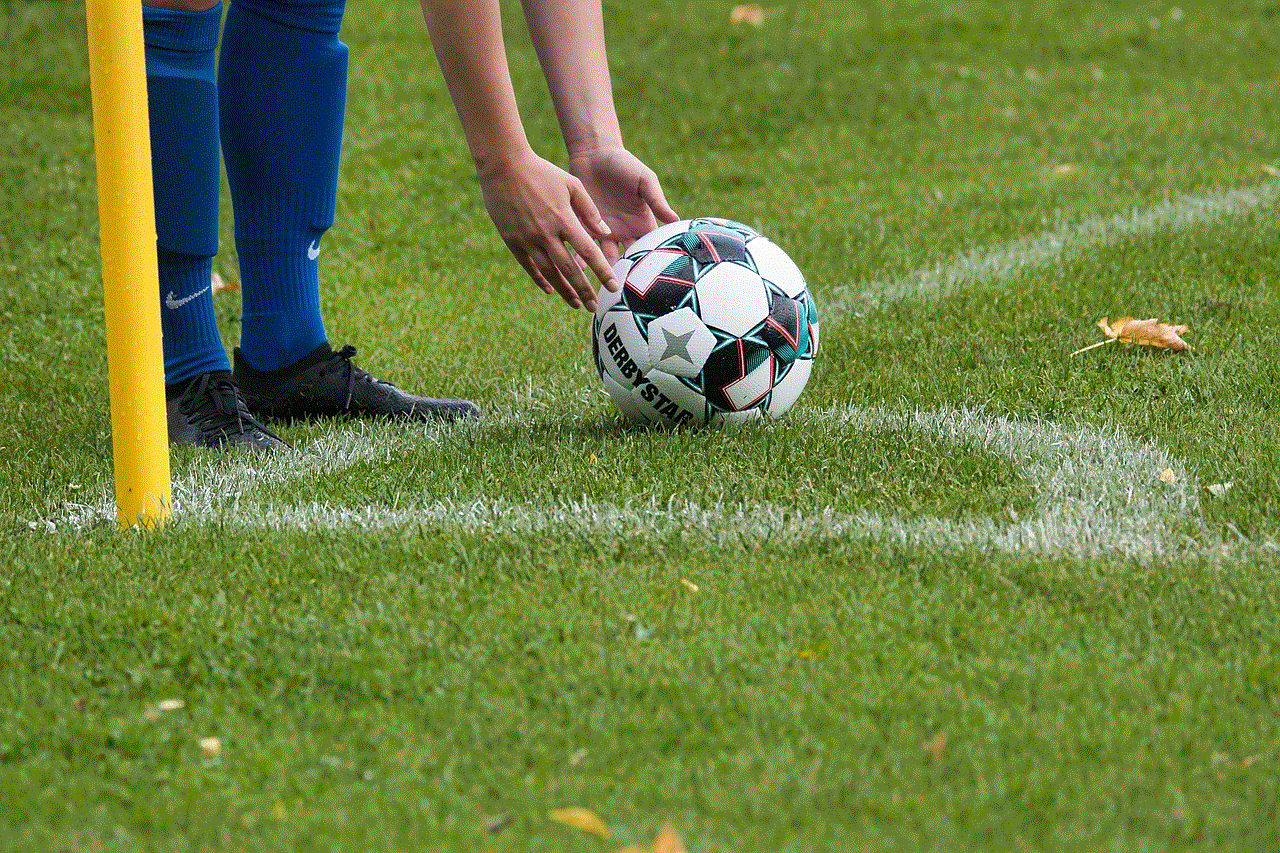how to know if blocked on snapchat
Snapchat, the popular social media app, has become a staple in many people’s daily lives. With its unique features of disappearing messages and filters, it has gained a massive following since its launch in 2011. However, like any other social media platform, Snapchat also has its own set of rules and regulations, and one of them is the ability to block other users. Being blocked on Snapchat can be a confusing and frustrating situation, leaving many users wondering how to know if they have been blocked. In this article, we will explore the various ways to determine if you have been blocked on Snapchat and what it means for your relationship with that person.
Before we dive into the signs of being blocked on Snapchat, let’s first understand what blocking means on this app. Blocking someone on Snapchat means that the person will no longer be able to see your Snapchat story, send you snaps, or view your Snapchat score. In simpler terms, it cuts off all communication between the two users. However, it is worth noting that when someone blocks you on Snapchat, they will not be automatically removed from your friend’s list, and you will not be removed from theirs. Now, let’s look at the signs that indicate you have been blocked on Snapchat.
1. You can’t find the person on your friend’s list
The first and most obvious sign that you have been blocked on Snapchat is that the person you suspect has blocked you will no longer be on your friend’s list. If you were previously friends with this person, their name will not appear on your list, and you will not be able to search for them using their username or phone number. However, this sign alone is not enough to confirm that you have been blocked, as the person may have deleted their account.
2. They won’t appear in your contact list
Another sign that you have been blocked on Snapchat is that the person will no longer appear in your contact list. When you open the Snapchat app, you will see a list of your contacts who have a Snapchat account. If the person you are looking for is missing from this list, it could be a sign that you have been blocked.
3. You can’t see their Snapchat score
Snapchat scores are a way to measure your activity on the app. It increases every time you send or receive a snap. If you have been blocked, you will not be able to see the person’s Snapchat score. However, this alone cannot confirm that you have been blocked as the person could have turned off their score from their settings.
4. You can’t see their Snapchat story
Another way to determine if you have been blocked on Snapchat is by checking if you can view the person’s Snapchat story. A Snapchat story is a series of snaps that a user posts that can be viewed by all their friends. If you have been blocked, you will not be able to see their story, and their story icon will not appear on your feed.
5. Your messages are not delivered
If you have been blocked on Snapchat, your messages to the person will not be delivered. When you send a message to someone on Snapchat, you will see a filled-in arrow next to their name. If you have been blocked, the arrow will turn into an empty one, indicating that your message was not delivered.
6. You can’t see their Bitmoji on the map
Snapchat has a feature called Snap Map, which shows the location of your friends on a map. If you have been blocked, you will not be able to see the person’s Bitmoji on the map, and their location will not be updated.
7. Your snaps are not opened or replied
If you have been blocked on Snapchat, your snaps will not be opened or replied to. When you send a snap to someone, you will see a filled-in arrow next to their name, indicating that they have received and opened your snap. However, if you have been blocked, the arrow will turn into an empty one, and the person will not be able to open or reply to your snap.
8. Your calls are not answered
Another way to determine if you have been blocked on Snapchat is by trying to call the person. If you have been blocked, your call will not be answered, and you will not see any notification that the person is unavailable. However, this sign alone cannot confirm that you have been blocked, as the person could have turned off their notifications.
9. Your snap score is not increasing
As mentioned earlier, your Snapchat score increases every time you send or receive a snap. If you have been blocked, your score will not increase when you send a snap to the person. However, this sign alone cannot confirm that you have been blocked as the person could be inactive on the app.
10. You receive a notification that you have been blocked
Lastly, the most obvious sign that you have been blocked on Snapchat is if you receive a notification stating that the person has blocked you . When someone blocks you on Snapchat, you will receive a message saying, “Sorry, you were blocked from sending messages or viewing their story.” This notification will confirm that you have been blocked by the person.
In conclusion, being blocked on Snapchat is not a pleasant experience, but it is essential to understand the signs and what they mean. However, it is worth noting that these signs are not always accurate, and there could be other reasons for them, such as the person deleting their account or being inactive on the app. If you are still unsure, you can try reaching out to the person through other means to confirm if they have blocked you. Remember to respect the person’s decision if they have chosen to block you and avoid any further communication with them.
does facetime have a time limit
Facetime is a popular video calling application developed by Apple Inc. It allows users to make video and audio calls from their iPhone, iPad, iPod touch, or Mac to other Apple device users. With its user-friendly interface and seamless integration with other Apple products, Facetime has become a go-to option for staying connected with friends and family. However, one question that often arises among users is whether Facetime has a time limit. In this article, we will explore this topic in detail and discuss the various factors that may affect the duration of a Facetime call.
Facetime was first introduced in 2010 with the launch of the iPhone 4. Since then, it has evolved to become a reliable and convenient means of communication for millions of users worldwide. One of the key advantages of Facetime is that it allows users to make high-quality video and audio calls over a Wi-Fi or cellular network, without any additional charges. This makes it a cost-effective option compared to traditional phone calls, especially for long-distance communication.
Now, coming to the main question – does Facetime have a time limit? The answer is no, Facetime does not have a specific time limit for calls. As long as you have a stable internet connection, you can continue your Facetime call for as long as you want. However, there are certain factors that may impact the duration of your Facetime call. Let’s take a closer look at them.



1. Internet Connection:
As mentioned earlier, Facetime calls require a stable internet connection to function. If your internet connection is slow or unstable, it can affect the quality of your call and even lead to disconnections. In such cases, your Facetime call may get interrupted, and you may have to reconnect. Therefore, it is essential to have a strong and reliable internet connection to enjoy uninterrupted Facetime calls.
2. Device Battery:
Another factor that may impact the duration of a Facetime call is your device’s battery life. Facetime is a resource-intensive application, and it can drain your device’s battery quickly. If your battery is low, your device may shut down, causing your Facetime call to end abruptly. Additionally, if you are using Facetime on a laptop, you may have to keep it plugged in to avoid running out of battery during a call.
3. Network Coverage:
In areas with weak or no network coverage, Facetime calls may not work correctly. The call quality may be poor, or the call may get disconnected frequently. In such cases, it is best to switch to a Wi-Fi connection or wait until you have a better network signal.
4. Data Usage:
Facetime calls use a significant amount of data, especially if you are using a cellular network. This can be a concern for users with limited data plans, as it can quickly consume their data allowance. If you are on a limited data plan, it is advisable to use Facetime over a Wi-Fi connection whenever possible.
5. Call Quality:
Facetime calls are known for their high-quality video and audio, but this can also be a factor that affects the duration of a call. If your internet connection is not strong enough to support HD calls, Facetime may automatically lower the call quality to ensure a stable connection. This can lead to a shorter call duration.
6. Number of Participants:
Facetime allows group video calls with up to 32 participants. However, the more people you add to a call, the more resources it will consume, and this can impact the call duration. If you are on a group call, it is advisable to keep the number of participants to a minimum to ensure a smooth and uninterrupted call.
7. Network Congestion:
In some cases, Facetime calls may get affected due to network congestion. This can happen during peak hours when there is a high volume of data usage on the network. In such cases, the call quality may be poor, or the call may get disconnected frequently. If you experience this often, it is best to schedule your Facetime calls during off-peak hours.
8. Device Compatibility:
Facetime is an Apple-only application, which means it is only available on iOS and Mac devices. If you are trying to make a Facetime call to someone who does not have an Apple device, it will not work. Additionally, Facetime calls between different Apple devices, such as an iPhone and a Mac, may have a shorter duration due to compatibility issues.
9. Restrictions:
Facetime has certain restrictions in place to ensure the safety and privacy of its users. For instance, Facetime calls cannot be made to or received from certain countries, such as Saudi Arabia and the United Arab Emirates. Additionally, parental controls can also limit the duration of Facetime calls for children.
10. Other Factors:
Apart from the above mentioned factors, there can be several other reasons why Facetime calls may have a shorter duration. These can include software glitches, network outages, or even server issues. In such cases, it is best to troubleshoot the problem or wait for the issue to be resolved.



In conclusion, Facetime does not have a specific time limit for calls, but there are various factors that can impact the duration of a call. Users should ensure a stable internet connection, sufficient battery life, and compatible devices to enjoy uninterrupted Facetime calls. Additionally, keeping the number of participants to a minimum and scheduling calls during off-peak hours can also help improve the call duration. Facetime continues to be a popular choice for video calls, and with advancements in technology, we can expect it to become even more efficient and reliable in the future.
cheating hiding your phone meme
Cheating in relationships has always been a controversial and sensitive topic. With the rise of technology and social media, the ways in which people cheat have evolved. One of the most common forms of cheating in today’s digital age is hiding one’s phone. This act has become a meme on the internet, with people joking about it, but the reality of it is much more serious.
Hiding one’s phone in a relationship can take many forms. Some people may simply keep their phone locked at all times, while others may delete messages and call logs to hide any evidence of communication with someone else. Regardless of the method, the intention remains the same – to conceal any signs of infidelity.
The act of hiding one’s phone in a relationship is a form of emotional cheating. Emotional cheating refers to forming a deep, emotional connection with someone other than one’s partner. This can include sharing intimate thoughts and feelings, seeking emotional support, and even flirting. While it may not involve physical intimacy, it can be just as damaging to a relationship.
One of the main reasons why people hide their phones in relationships is due to a lack of trust. In a healthy relationship, there should be a level of trust and transparency between partners. However, if one partner feels the need to hide their phone, it can be a sign that there are underlying trust issues in the relationship. This can stem from previous experiences or behaviors that have caused the individual to doubt their partner’s loyalty.
Another reason for hiding one’s phone could be a fear of confrontation. Many people avoid conflicts and would rather avoid a difficult conversation with their partner. By hiding their phone, they can avoid any potential accusations or arguments. However, this avoidance can lead to further issues in the relationship and can erode trust between partners.
In some cases, people may hide their phone in a relationship as a form of revenge. If one partner suspects the other of cheating, they may resort to hiding their phone as a way of getting back at them. This can create a toxic and unhealthy dynamic in the relationship, as both partners are engaging in manipulative behavior.
Furthermore, hiding one’s phone can also be a sign of addiction. With the constant stream of notifications and updates, many people have become addicted to their phones. This addiction can cause individuals to prioritize their phone over their relationship, leading them to hide it in order to have uninterrupted access to it. This can also lead to secrecy and dishonesty in the relationship, as the individual may feel the need to constantly check their phone without their partner knowing.
The impact of hiding one’s phone in a relationship can be detrimental. It can lead to a breakdown of trust, communication, and intimacy between partners. The one who is hiding their phone may feel a sense of guilt and shame, which can affect their behavior and interactions with their partner. The other partner may feel betrayed and insecure, constantly questioning their partner’s loyalty.
Moreover, hiding one’s phone can also have a negative effect on one’s mental health. The constant need to hide and deceive can cause significant stress and anxiety. It can also lead to feelings of paranoia and a constant fear of being caught. This can take a toll on one’s emotional well-being and can lead to further issues in the relationship.
The internet is full of memes and jokes about hiding one’s phone in a relationship. While some may find these humorous, it is important to recognize the seriousness of the issue. Hiding one’s phone is not a joke; it is a sign of deeper issues and can have serious consequences for the individuals involved.
So, what can be done to address this issue in a relationship? The first step is to have an open and honest conversation with your partner. It is important to express your concerns and feelings without accusations or assumptions. Both partners should be willing to listen and work towards finding a solution together.
Building trust and transparency in a relationship takes time and effort. Both partners need to be committed to rebuilding trust and being open with each other. This may involve setting boundaries and agreements about phone usage, such as not deleting messages or having regular check-ins with each other.
In some cases, seeking professional help may also be beneficial. Couples therapy can provide a safe space for partners to address their issues and work towards rebuilding trust and intimacy in the relationship. It can also help individuals understand the root causes of their behavior and provide tools for healthier communication and coping mechanisms.



In conclusion, hiding one’s phone in a relationship is a serious issue that should not be taken lightly. It can have a significant impact on the individuals involved and the relationship as a whole. It is important to address this issue with honesty, empathy, and a willingness to work together towards a healthier and more trusting relationship.